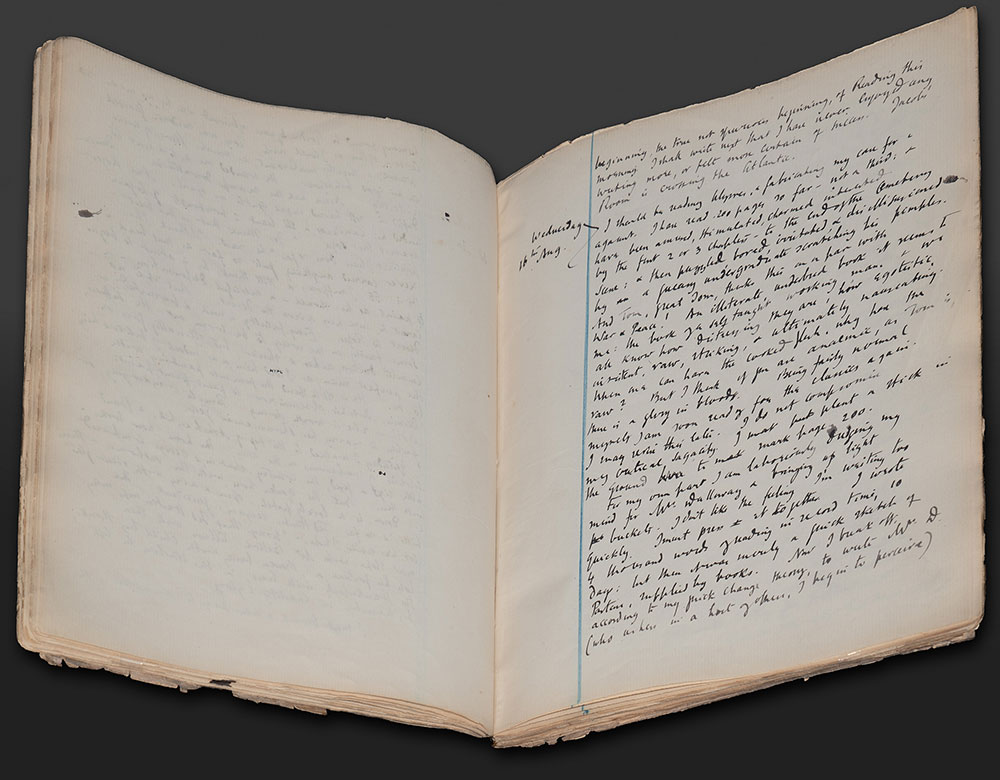
Virginia Woolf’s diary entry, which begins,“I should be reading ‘Ulysses’ and fabricating my case for and against,” conveys a mix of emotions and opinions about the novel’s first two hundred pages. Stimulated and amused by early episodes, Woolf is ultimately repulsed by its graphic passages. Shocked that “great Tom” (T. S. Eliot) rates it on a par with Leo Tolstoy’s War and Peace, Woolf calls Ulysses an “underbred” novel by an egoistic “self-taught working man.” Elsewhere in her diary and writings, Woolf sets aside some of her condescension and recognizes that Joyce was rehearsing aspects of narrative that she herself had begun to articulate and would realize in her own way: “to record the atoms as they fall upon the mind in the order in which they fall,” “an ordinary mind on an ordinary day.”
Installation shot of Virginia Woolf (1882–1941), Diary entry, 16 August 1922
The Henry W. and Albert A. Berg Collection of English and American Literature, The New York Public Library, Astor, Lenox and Tilden Foundations
© The Society of Authors as the Literary Representative of the Estate of Virginia Woolf
Ulysses, when it appeared, created a great stir. Figures like T.S. Eliot and W.B. Yeats praised the book highly, but there were others who viewed it much more suspiciously, including Virginia Woolf. Her diary entry on the book begins,“I should be reading Ulysses and fabricating my case for and against.” And she was stimulated and amused by an early episode, but eventually, she was shocked by its graphic passages. She called Ulysses “Underbred novel, by an egotistical, self taught working man,” which James Joyce certainly wasn't. But elsewhere, she did set aside some of her condescension and she did recognize that Joyce was rehearsing aspects of narrative, that indeed she herself was working with, “To record,” as she said, “the atoms as they fall upon the mind, the order in which they fall, an ordinary mind on an ordinary day.”
